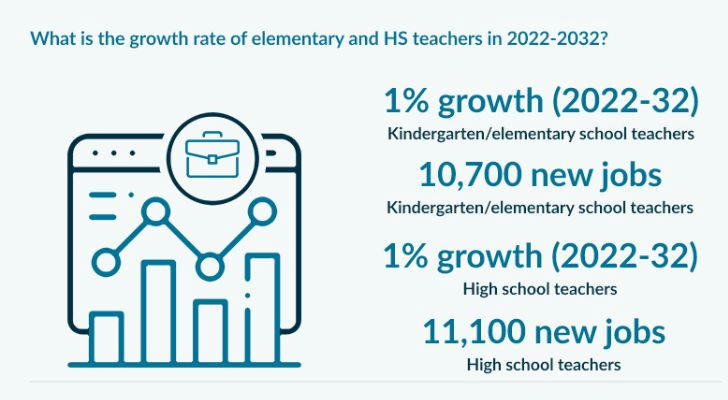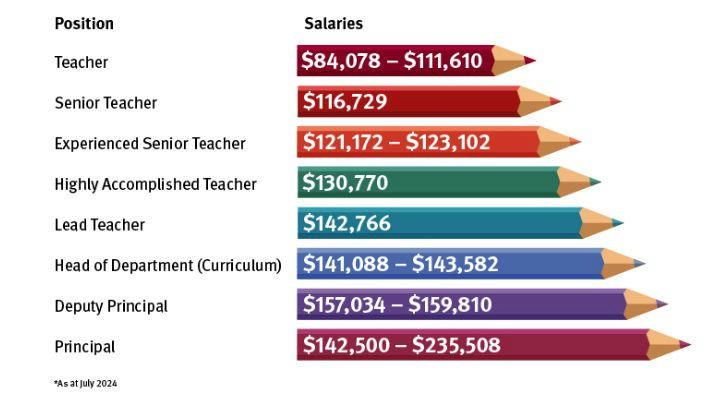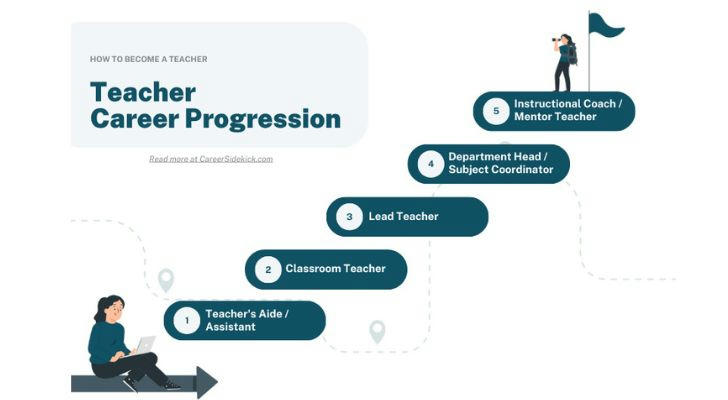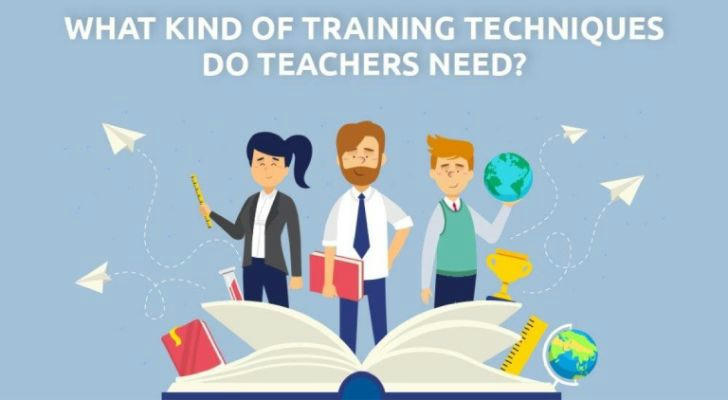Career Prospects for Kindergarten Teachers
Why are kindergarten teachers important in the U.S. education system?
Kindergarten teachers play a crucial role in a child's early education, especially during the critical ages of 3 to 5. Research shows that children who receive high quality early education tend to perform better academically and socially. For example, a study by the National Institute of Child Health and Human Development found that kids who attended quality early education programs had 25% higher literacy skills in elementary school. Kindergarten teachers are not just caregivers; they help set the foundation for children's future success.

What are the main responsibilities of a kindergarten teacher?
The role of a kindergarten teacher goes beyond just watching over kids—they are also responsible for teaching. Teachers create fun and creative activities like art, music, and storytime to help children develop their language, cognitive, and social skills. According to the U.S. Bureau of Labor Statistics, the average kindergarten teacher is responsible for about 15 20 kids each day, ensuring their safety and providing personalized support. This role requires excellent organization and a lot of patience.
What are the job trends for kindergarten teachers in the U.S.?

The demand for kindergarten teachers is steadily growing in the U.S. The Bureau of Labor Statistics predicts a 4% job growth for kindergarten teachers from 2022 to 2032, which is similar to the average growth for all jobs. As more parents recognize the importance of early education for their children's future and with more dual income households, the need for kindergarten teachers will continue to rise. Additionally, government initiatives like President Biden's American Families Plan, which supports early education, will create even more teaching jobs.
What are the salaries and benefits for kindergarten teachers?

Kindergarten teacher salaries vary by state, experience, and work environment. As of 2022, the average annual salary for a kindergarten teacher in the U.S. was about $32,000, but experienced teachers can earn $40,000 or more. In public schools, benefits usually include health insurance, retirement plans, and paid time off. In private schools, salaries and benefits may be more flexible, especially in high demand areas like New York or California.
What are the opportunities for career advancement?

Kindergarten teachers have plenty of opportunities for career growth. Besides moving up to become lead teachers or school principals, teachers can also pursue additional training to move into leadership roles. In fact, about 10% of kindergarten teachers in the U.S. eventually take on management roles. With more education and certifications, teachers can also specialize in areas like child psychology, special education, or become early education consultants, which often come with higher pay and more career flexibility.
What other careers can kindergarten teachers transition to?
The skills that kindergarten teachers develop, like teaching and working closely with children, make them well suited for various other careers. Many teachers transition into roles like educational consultants, where they provide advice to schools or educational organizations. Others may move into child psychology or become trainers who help other teachers improve their teaching skills. Some even work in areas like children's publishing or educational technology companies, using their expertise to support these industries.
How can kindergarten teachers improve their career prospects through training?
Ongoing professional training and education are key to advancing in this field. Most states in the U.S. require kindergarten teachers to have at least a bachelor's degree in early childhood education or a related field. Earning additional certifications in special education, early intervention, or child psychology can significantly improve a teacher's job prospects. Teachers with these extra qualifications typically see their salaries increase by 10 15% and have more opportunities to move into leadership roles or specialized educational fields.
What challenges do kindergarten teachers face, and how can they cope?

While teaching kindergarten can be rewarding, it also comes with challenges, such as managing classroom behavior and dealing with work related stress. According to a survey by the National Association for the Education of Young Children, about 30% of kindergarten teachers report feeling emotional stress from their job. To cope, many schools now offer mental health support and stress management training. Strong teamwork, time management skills, and parent support can also help teachers handle these challenges better.
What are the future trends in early childhood education?

With the rise of digital tools, early childhood education is evolving rapidly. Many kindergartens in the U.S. are now using interactive whiteboards, educational apps, and digital learning platforms to enhance the classroom experience. By 2025, it's expected that 50% of kindergartens will adopt some form of digital teaching tools. These tools not only help teachers be more efficient but also engage children in interactive and fun ways. Government investments in early education, such as those in the American Families Plan, will continue to boost demand for kindergarten teachers and shape the future of the industry.
Real Life Case Study: Success in a Kindergarten Teaching Career
**Background:**Sarah Johnson, a kindergarten teacher from Ohio, started her career in 2008 after earning her bachelor's degree in early childhood education. In her first few years, she worked as a classroom teacher, managing 20 kids every day. Despite the challenges and pressures, Sarah's love for working with children kept her motivated.
**Career Growth:**After five years, Sarah realized she wanted to grow professionally and decided to further her education. She pursued a master's degree in child psychology and also completed training in special education. With these new qualifications, she became certified to help children with special needs.
**Promotion and Transition:**Sarah's additional qualifications led to a promotion as a lead teacher and, soon after, to the role of assistant principal. By 2022, Sarah became a state level early education advisor, helping other kindergartens improve their teaching methods. Her salary increased from $35,000 to $60,000, and she received better benefits.
**Her Reflection:**Sarah says, “I never thought I'd advance this far, but by continuing to learn and improve, I opened up more possibilities for my career. As a kindergarten teacher, I've not only helped children grow, but I've also found new opportunities for myself.”
This real life example shows how a kindergarten teacher can grow and succeed by investing in continuous learning and professional development.
What is the overall outlook for kindergarten teachers?
The future looks bright for kindergarten teachers in the U.S. As society places more emphasis on the importance of early childhood education, the demand for qualified teachers will continue to rise. While the job can be challenging at times, with ongoing training and professional development, kindergarten teachers can enjoy a stable career, good benefits, and plenty of opportunities for advancement. For those who love working with children and want a meaningful career in education, becoming a kindergarten teacher offers both fulfillment and long term career growth.
